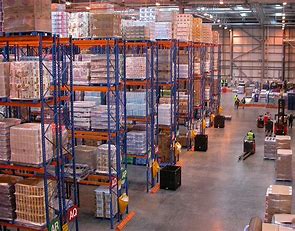Supply chain management is the management of the flow of goods and services and includes all processes that transform raw materials into final products. It involves the active streamlining of a business’s supply-side activities to maximize customer value and gain a competitive advantage in the marketplace. SCM represents an effort by suppliers to develop and implement supply chains that are as efficient and economical as possible. Supply chains cover everything from production to product development to the information systems needed to direct these undertakings.
Supply chains today are increasingly interconnected, complex and global with many entities working in unison to source, convert and deliver products to customers. A resilient supply chain can not only help enterprises respond swiftly and effectively to economic, technological and market disruptions, but also help them gain a competitive advantage. The goal of a resilient supply chain is to minimize negative impacts of these disruptions on revenues, costs and customers. Our supply chain consulting services help enterprises create and manage high-performing, resilient supply chains that drive sustained, profitable growth, even in the face of sudden, dramatic change.
Leverage supply chain sustainability to gain competitive advantage. ARMKU designs, develops and implements strategies that create high-performance, sustainable solutions that deliver success over both the short and long term.
Experience the real, hard-number impact – reduced expenses, improved agility, greater flexibility and responsiveness – that can help your organization boost both profitability and competitiveness.
The Complete Solution

Key components of supply chain performance
Optimizing an organization’s supply chain is driven by several key components. Some questions that companies should consider to improve the function include:
People – Is my organization structured appropriately to support strategic goals?
Process – Do we have the right operational processes in place in order to drive efficiency and improve performance? Are they adequately documented? Is effective training in place?
Systems – Do we have the right systems for planning, execution and reporting? Can we effectively communicate with our trading partners? Are we employing the right platform and infrastructure to meet our long-term goals?
Facilities – Do we have appropriately designed facilities in the correct locations? Are capacity and utilization adequately positioned?
Equipment – Have we selected and employed the most appropriate equipment for our physical operations? Is it properly maintained and utilized?
Align your supply network to business requirements
Bring flexibility and agility to your supply chain
Reduce supply chain complexities
Identify and mitigate supply chain risks
Ensure complete supply chain visibility
Improve time-to-market
Create strategic, competitive advantage
